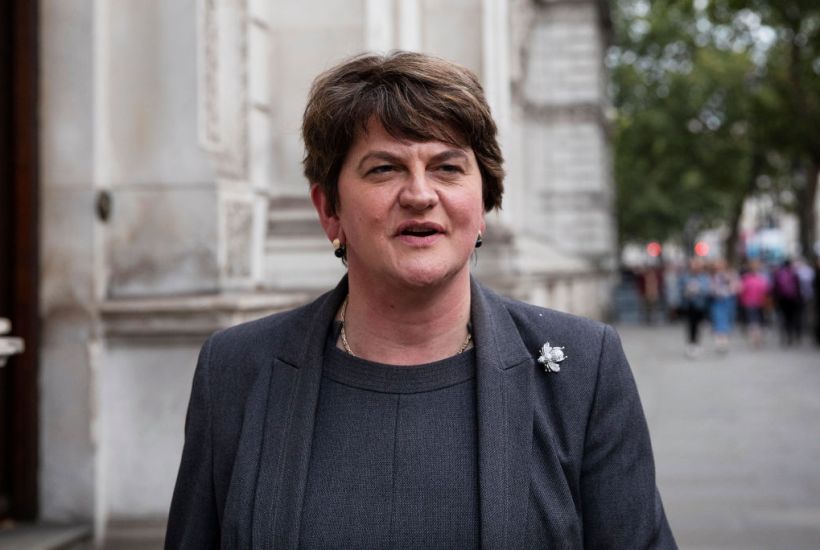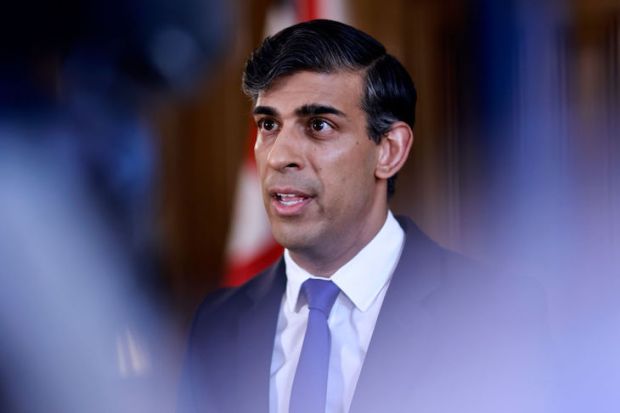The brutal defenestration of Arlene Foster as leader of the Democratic Unionist Party could have severe implications for an already volatile situation in Northern Ireland.
It is almost certain that whoever succeeds her will lack the instincts which saw the outgoing First Minister try initially to make the Protocol work. Instead, the mission seems to be to try and shore up the base and prevent the hard-line Traditional Unionist Voice doing to the DUP what the DUP did to David Trimble and the Ulster Unionists.
This is a grim prospect for London, Dublin, and Brussels, although it won’t hurt the former’s case that fundamental change is needed if the Protocol is to work. But it also raises broader questions about the future of unionism.
One of the tragedies of Foster’s leadership has been that she has squandered what looked like a strong opportunity to put the UK on the front foot. Unlike her predecessors who came up through the party’s Presbyterian tradition, she was an ex-Ulster Unionist who seemed more at ease with modern Britain and who might have tried to raise the DUP’s sights beyond simply holding on to its hegemonic position in its own community.
In addition, the historic conjunction of her leadership with the EU referendum, Theresa May’s premiership, and the 2017 election result gave Foster a golden opening to try and rebuild Ulster unionism’s connections to mainland politics. The referendum saw the DUP take part in a UK-wide campaign (it even sponsored Vote Leave adverts in London), while the aftermath of the shock Conservative setback at the polls created an opening that could have seen Northern Irish MPs taking up government posts for the first time since the 1970s.
Alas, it was not to be. Instead, the party fell back on the inglorious tradition of making off with as much money as it could get away with and languishing in the farthest corner of the Commons with the rest of the ‘Others’. Meanwhile, at home the DUP has overseen the loss of unionism’s majority and done little to boost its reputation with moderate and younger voters by giving free rein to its religious wing on a range of social issues.
Should Foster’s successor hail from the party’s hard-line wing – and the fact that she herself apparently intends to quit the party is an ill omen – then both of these problems will only get worse.
Northern Ireland’s position in the United Kingdom rests on three pillars: organising and enthusing the unionist community in the Province; maintaining at least the acceptance of the nationalist community; and building alliances and maintaining reservoirs of goodwill on the mainland.
Unionism has arguably neglected the latter two since the days of Sir Edward Carson. This has to change. If the DUP are going to retrench around their core vote, it is imperative that Ulster voters are offered a better pro-Union alternative.
The Conservatives, not just locally but at CCHQ, should give serious consideration to trying to be part of that answer. After two decades of ‘devolve and forget’, there is a clear philosophical continuity between the sort of thinking that produced the UK Internal Market Act, with its expanded role for the British Government in the Province, and the original Campaign for Equal Citizenship which saw the Tories first commit to standing there in the 1990s.
Robert McCartney’s pro-integration UK Unionist Party shows no sign of coming back (so far…). But it would be worth looking again at the potential for reforging official relationship between the Party and the Ulster Unionists. Memories of the grossly-mismanaged ‘UCUNF’ link-up might make all involved cringe, but a pathway into national politics could offer a new lease of life to a UUP which is struggling to carve itself a niche in the pro-UK electorate between the DUP and the Alliance Party.
A relationship modelled on Canada, where local franchises contest local and provincial elections but national parties fight general elections, could offer a cleaner and more rationally-ordered division of responsibilities, and give Northern Irish voters at least an opportunity to return MPs who could serve in the government and contribute to national politics outwith the Ulster portfolio.
Of course, the doomsday situation may not come about. A victory for Sir Jeffrey Donaldson, one of the DUP MPs who was most enthusiastic about working with the Conservatives and another ex-Ulster Unionist, would be less worrying.
But whatever happens, rebuilding the burned bridges between unionist politics on either side of the water is vital. How can we hope to sell the virtues of union to the 21st century electorate if we can’t even forge a union of the unionists?
Got something to add? Join the discussion and comment below.
Get 10 issues for just $10
Subscribe to The Spectator Australia today for the next 10 magazine issues, plus full online access, for just $10.



















Comments
Don't miss out
Join the conversation with other Spectator Australia readers. Subscribe to leave a comment.
SUBSCRIBEAlready a subscriber? Log in